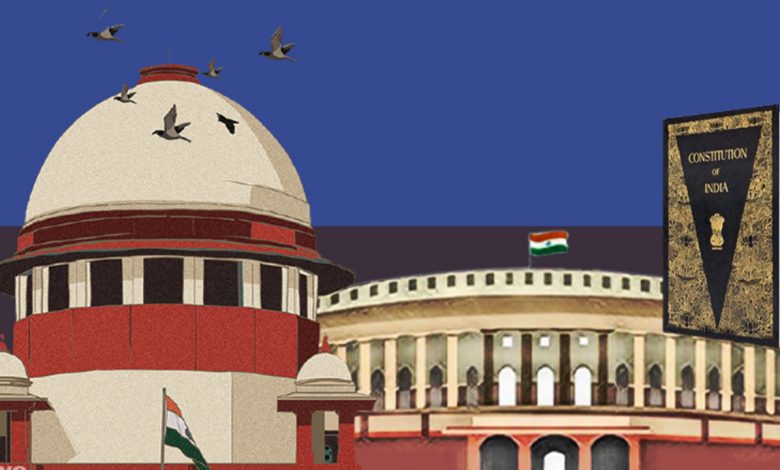Daily Current Affairs for UPSC
Article 105 of Constitution
Syllabus- Indian Polity and Governance [GS Paper-2]

Context– In a letter to the chairman of the Rajya Sabha, the opposition leader highlights the advantages that Members of Parliament enjoy under Article 105 of the Indian Constitution.
Key Highlights
- In accordance with Article 105 of the Indian Constitution, members of Parliament are exempt from legal action for anything they say or do while performing their duties.
- However, unless there is a motion to present an address to the President pleading for the Judge’s removal, Parliament cannot discuss the conduct of judges of the Supreme Court or a High Court.
- Some non-members, like India’s Attorney General or a Minister who may not be a member but speaks in the House, enjoy the immunity of MPs.
- The Government of India Act of 1935, which made reference to the powers and privileges enjoyed by the House of Commons in Britain, was the source of the concept of this privilege for Parliament.
- The House of Lords granted Sir John Elliot, a member of the House of Commons, immunity in the 17th-century case R vs. Elliot, Holles, and Valentine, stating that the words spoken in Parliament should only be considered in that context.
- In addition, the Bill of Rights of 1689, by which the Parliament of England definitively established the concept of a constitutional monarchy, enshrined this privilege.
- In the 1970 case Tej Kiran Jain v. N. Sanjiva Reddy, the Supreme Court ruled that the phrase “anything” in Article 105 has the same meaning as “everything.”
- Instead of the court, cases involving MPs who violate admissible free speech are currently handled by the Speaker or the House itself.





.png)



